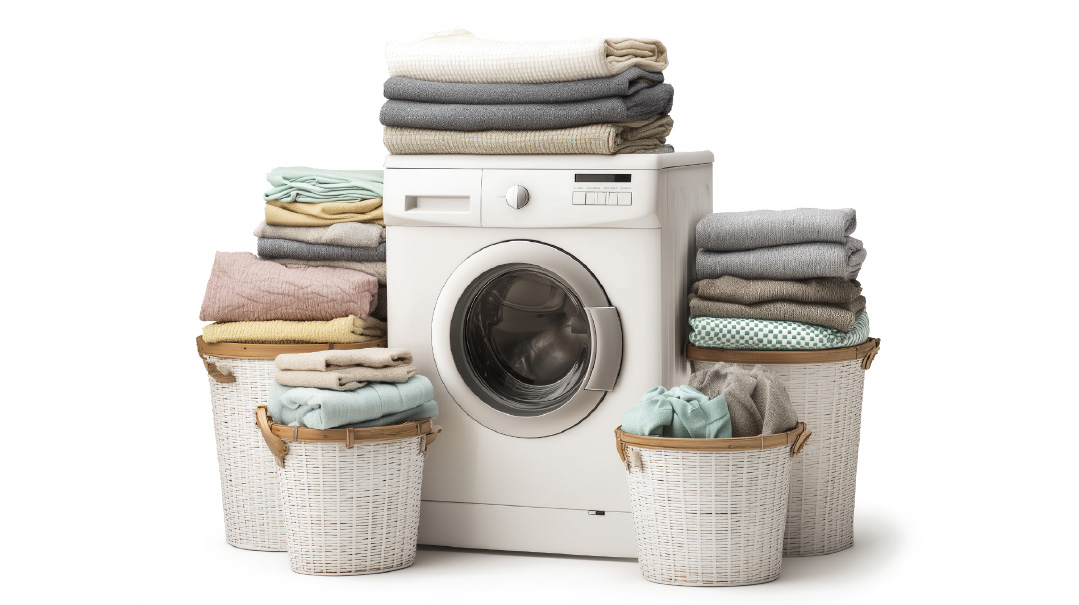Money Talks
| February 13, 2024A child knows when others have more — or spend like they have more

MY issue with money is simple. I like it.
I don’t know if it’s the endless possibilities that I fantastically entertain, imagery of beautiful houses or clothing or jewelry. Or maybe just knowing that I could is what does it. And although I know that money isn’t that important, if I’m really open with myself, I’ll admit that it does draw me in.
Growing up there was plenty that I wanted. My parents worked hard and raised a large family, and money was not in abundance. But there was more to it. My father always cautioned us about living rich and not hanging our money on our windows. So we lived simply both because it was practical — there wasn’t so much money on hand — and also on principle.
As a child, though, it was hard to make that distinction. A child knows when others have more — or spend like they have more. A straight shooter, when my parents asked if I “needed” a sweatshirt or extra pair of shoes, I’d invariably say that I didn’t. I wanted it, sure, but I didn’t need it. And so it went; I asked only sometimes, and often was told no. Abundant wardrobes, childhood fads, and better brands were a nonentity in our home.
I clearly remember a financial dilemma I faced as a young girl, when I was about eight or nine. In the colony we went to for the summers, traveling salesmen would come by on Sundays to sell their wares. It was exciting, and we kids would run over to browse the selection. One time, I found a wallet that cost five dollars. Quickly calculating, I realized that if I pooled all my savings I’d have just enough. Perfect!
But I realized with some disappointment that if I’d buy the wallet, I wouldn’t have anything to put in it. Or I could have money, but no wallet to keep it in. I went back and forth, from the coveted wallet sitting on the vendor’s table to my painstakingly saved cash stash in my drawer, unsure of which way was more sensible: a wallet with no money to put in it, or money with no great place to keep it? Or I realized, I could buy the wallet and wait until I saved up more money. Then I’d have a wallet with money. It was a big dilemma for a little girl. I can’t recall how I resolved this conflict.
Once, my older sisters and I were sitting around on the couch on Shabbos after the men went to shul. Our theoretical discussion was about whether we’d choose a warm coat or a pretty one, given the choice. Practical Batsheva, the oldest, said she’d rather a warm coat. She’d want to be comfortable outside when the winds and rain and snow came along. Devorah, the sister on top of me, was more fashion conscious; she chose a pretty coat. She’d rather freeze and look nice than be warm and feel dowdy, she said. And me? I said I wanted both. I know, it wasn’t an option, but I wouldn’t give up on one or the other. I didn’t see why I couldn’t have the best of both.
As I got older and my siblings left the house and started families of their own, my parents’ finances shifted. While they never became careless with money, the stresses eased a bit.
When I got married, my financial mindset had to adjust again. Ironically, my husband grew up with the opposite mindset. His parents weren’t rich, but in their home, money was not the final deal breaker when considering the question of to get or not to get. In their home, finances ran along the lines of, “If you need it, buy it.”
So there we were, a young couple, and my husband was rich and I was poor, though we shared the same pocketbook. Then, as the years went on, my husband’s easygoing attitude lowered my defenses. I sincerely wanted my children to feel safe and secure, to always feel like they had what they needed. I wanted money to never be the overriding factor in our decision-making and definitely not an ongoing conversation piece around the supper table.
When my kids got old enough, they’d ask if we were rich. Of course, I’d tell them. We are rich in mitzvos and maasim tovim! We’d discuss how having more doesn’t make one happier, and they know it to be true. Once in a while, when a child shares their secret wish to win the $5,000 cash raffle, we discuss what they’d do if they’d hold the winning ticket. Thankfully, the kids usually can’t answer the question. The best answer they come up with is to save it.
This past summer was joyously long. Four weeks of local day camp followed by a stay in the Catskills. And then came the third half of summer, a full three weeks between the country and school. Yes, we needed to prepare for school, find shoes, and buy uniforms and countless supplies for each kid. Double yes that I had to work as well.
So when two of my girls decided to host a day camp for siblings, neighbors, and cousins, I was super pleased. Success on all fronts: The mornings were spent preparing and then conducting the activities; the planning took place in the late afternoon hours. I was able to get out to the office for a few hours each day, and the campers enjoyed the activities so much, they stayed on way past the scheduled end time.
While I don’t pay my kids to help, I told my girls they’d get something small but special for their hard work. The more decisive of my girls knew just which electronic neck fan she wanted. That was easy. The more deliberative one wasn’t yet sure. I figured she’d decide soon enough.
And then, one random afternoon, with the orange leaves still smiling at the dusky sky, my girls came home from school, scattering their loaded knapsacks haphazardly and vying for my attention.
Amid the din, as they haggled over the supper menu and argued whether they preferred milchig or fleishig, my daughter came up to me. “I think I figured it out,” she said. Busy dishing out chicken nuggets and spaghetti, I was caught a bit off guard, and it took me a moment to realize she was referring to the day camp prize I’d promised. Curious, I asked her what she had in mind.
“Ma,” she said, with a shy smile, slowing to catch her breath, “I realize that I don’t really need anything. I don’t need prizes, even though they’re nice. We have games, toys, and projects. I think I’d just enjoy a bar of chocolate.”
It wasn’t the money that she didn’t spend that gave me that touch of pride and a deep sense of gratefulness. It was her satisfied smile, her realization that she has what she needs, that having more won’t make us happier or better people.
Million-dollar clarity from the rich kid on the block.
(Originally featured in Family First, Issue 881)
Oops! We could not locate your form.







